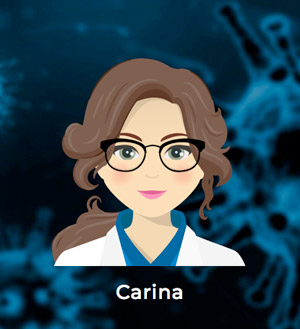Doubts about Covid-19?
UPV offers you Carina, the new virtual assistant who can answer your questions about coronavirus
[ 25/03/2020 ]
If you have any doubt about the coronavirus, ask Carina, the new virtual assistant specialized in Covid-19 that Universitat Politècnica de València (UPV) is making available to the university community and more widely to anyone who would like to use it. You will find in in the lower right corner of your screen.
Developed by a multidisciplinary group of experts in different areas (biology, sociology, linguistics, etc.), Carina extracts information from official sources, like World Health Organization (WHO), the Spanish Ministry of Healthcare, or the Center for Disease, Control and Prevention, in order to reply to all sort of doubts which are collapsing information services and sanitary centers.
Based on artificial intelligence, Carina can answer all basic and many specialized questions about Covid-19: infection, symptoms, prevention and measured derived from the State of Alarm declared by the Spanish government.
What do you need to know about coronavirus? Carina answers (in Spanish).
Outstanding news
 Study a degree at the best technological university in Spain
Study a degree at the best technological university in Spain
The Universitat Politècnica de València is ranked number 1 among Spanish technology universities, according to the Shanghai ranking
 Highly Cited Researchers 2025
Highly Cited Researchers 2025
Avelí Corma, Juan Bisquert and Luis Guanter, the international scientific elite with a Universitat Politècnica de València hallmark
 Historic Milestone in Spanish Higher Education
Historic Milestone in Spanish Higher Education
The UPV inaugurates the Beihang Valencia Polytechnic Institute, the first Spanish university center in China
 Study in English
Study in English
The UPV offers eight degrees, 16 master's and 650 courses in English for the 2025-26 academic year
 A Latin Grammy... with the UPV hallmark
A Latin Grammy... with the UPV hallmark
'Music teaches us to listen and live together,' says Rafael Serrallet, Doctor of Music at the UPV, awarded in Las Vegas as the author of the Best Instrumental Album of 2025
 THE Impact Ranking
THE Impact Ranking
The UPV, the Spanish university with the greatest social and economic impact in the world

